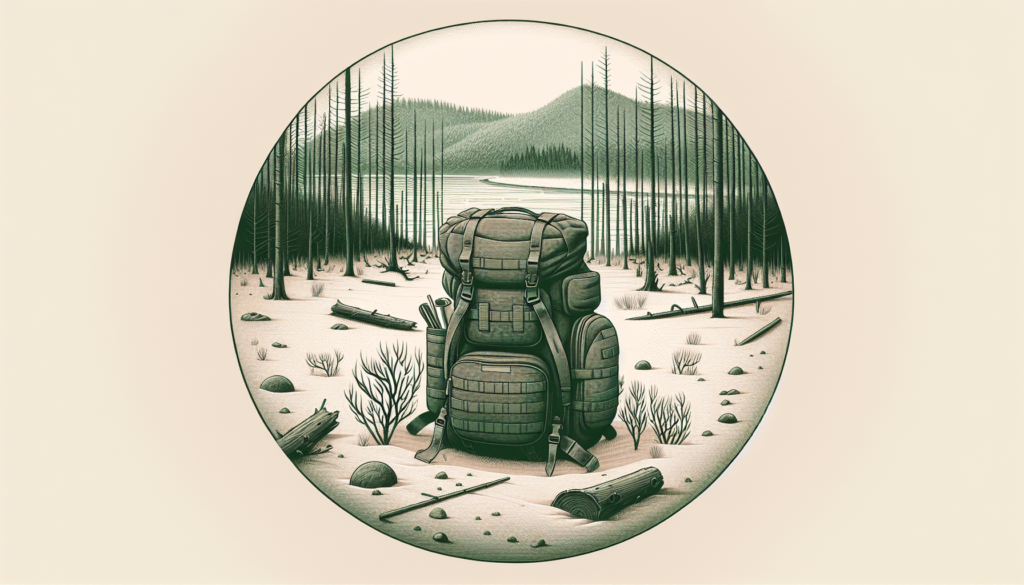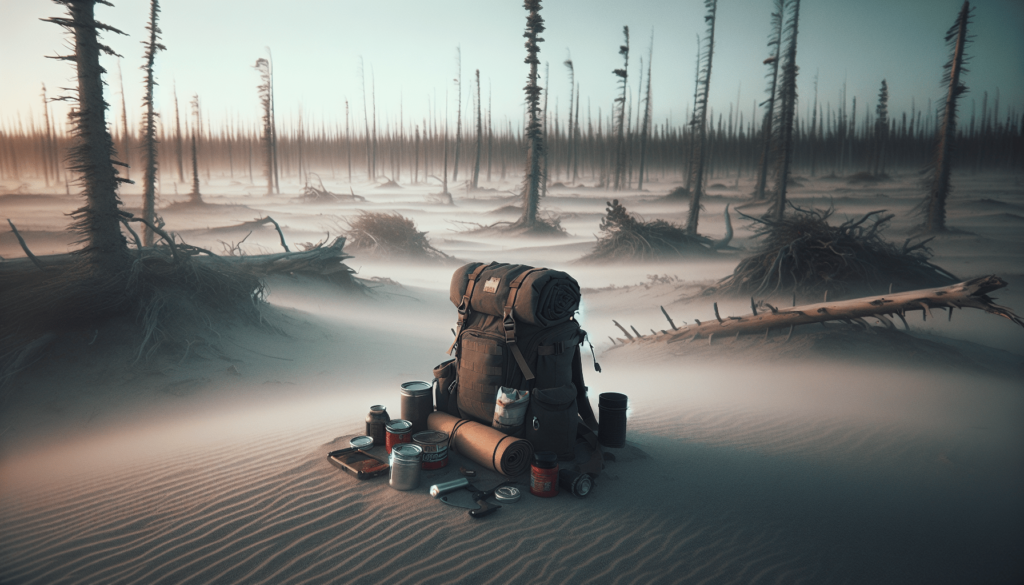
Have you ever thought about what motivates people to prepare for the end of the world? It’s a fascinating blend of practicality, fear, faith, and sometimes, pure curiosity. For those who subscribe to this preparedness mindset, their actions are far more than just a hobby; it’s a lifestyle. So, what is it called when someone prepares for the end of the world? Well, if you’ve stumbled onto this subject, you might be familiar with the term already: “prepping.”

Understanding Prepping
Prepping isn’t just about collecting canned beans and bottled water like it’s going out of style. It’s a comprehensive effort to be ready for anything that life—or a hypothetical doomsday—might throw one’s way. Whether it’s a natural disaster, global economic collapse, or even a zombie apocalypse (hey, everyone’s got their thing), preppers take steps to ensure they can survive and thrive without external support when the time comes.
The Origins of Prepping
The practice isn’t new. For as long as humans have wandered about with consciousness and foresight, there’s been a tendency to prepare for the worst. If we take a look back, we’d see those early tribal societies stashing away every last morsel of food or resource to weather particularly harsh winters or droughts.
Fast forward to the 20th century, where the concept found its footing amidst growing tensions of global conflict and the Cold War. Remember those backyard bomb shelters your grandparents might babble on about? A direct result of early prepping practices.
The Life of a Prepper
You might wonder what a day in the life of a prepper looks like. Are they always checking expiration dates and running drills? Well, perhaps some, but it stretches beyond that. It’s about self-reliance, skills acquisition, and sometimes a good bit of DIY ingenuity.
Preppers often engage in diverse activities like:
- Gardening and Farming: Becoming self-sufficient in food production.
- First Aid Skills: Being able to handle medical emergencies is crucial.
- Home Defense Skills: Ensuring their safe space can remain secure.
Now, worth mentioning, not all preppers are cut from the same cloth. You’ll find a wide spectrum in their beliefs, methods, and motivations.
Motivations for Prepping
Fear of the Unknown
Let’s be honest: a lot of us are afraid of what we don’t know. The future is notoriously unpredictable, and the idea of being caught unprepared could send shivers down anyone’s spine. Many preppers are driven by the anxiety of potential catastrophes because sometimes, just the thought of Mother Nature or human folly causing mayhem can be reason enough.
Influence of Media
Ah, the media! Television shows, books, and movies absolutely love to paint scenarios in which society collapses. Such narratives can be both terrifying and oddly motivating. Zombie shows, alien invasions, and post-nuclear landscapes might sound like science fiction, but they can push some people toward taking tangible precautions. Nothing like a Hollywood production to spark existential dread, right?
Desire for Independence
There’s a certain appeal to the idea of not depending on external systems. For many, prepping is less about doomsday and more about not wanting to rely on cumbersome supply chains. Those folks might be less concerned about world-ending scenarios and more about wanting to live off the grid, away from the hustle and bustle of consumerism.
Common Misconceptions About Prepping
They Believe the Apocalypse is Imminent
Sure, some probably do—there’s no denying that. But lumping every prepper into the “end is nigh!” crowd isn’t fair. Many merely enjoy the sense of security that comes with being prepared. They might compare it to car insurance; you don’t plan to crash, but it’s better to have it just in case.
It’s All About Hoarding
It’s a maddeningly prevalent stereotype that preppers hoard supplies like it’s their life’s sole mission. In reality, effective prepping is often about having just enough of what you need, not trekking the Black Friday aisles for cartfuls of tangential stuff. It’s a curated collection of essentials, based on personal needs and priorities.
Preppers Are Loners
Not everyone sees the end of the world as an ‘every person for themselves’ scenario. Prepping communities actually exist where members share tips, tricks, and camaraderie. Ever heard of a potluck? Think that, but with survival tactics.
The Psychology Behind Prepping
Perhaps now you’re wondering why some folks get that prepper itch in the first place. The psychology behind the movement is as layered as a well-packed bug-out bag.
A Need for Control
Naturally, we prefer to navigate life with some semblance of control. Disasters strip that away in a flash, leaving us reeling. Prepping helps bolster a sense of mastery over one’s environment and future.
It’s Human Nature
From the time we foraged through jungles to the modern-day stockpiling, preparation has been a part of us. At its core, it’s the human instinct of survival, dressed up in contemporary flair.
A Sense of Community
One might think of prepping as a solitary endeavor, but for many, it’s about belonging to a community. Groups, forums, and clubs bring people together, sharing the commonality of preparedness. There’s comfort in knowing others share your vision (or concerns).

Practical Aspects of Prepping
To the untrained eye, prepping might seem chaotic or excessive. But underneath, there’s a method to the madness, a method that perhaps we should all consider applying to some degree.
Food and Water Storage
Two essentials when considering survival: food and water. Preppers often focus on long-term preservation methods, like canned goods or water purification systems. Here, it’s less about having a year’s worth of baked beans and more about dietary sustainability.
Emergency Kits
Creating compact, efficient emergency kits is a skill in itself. Called Bug-Out Bags (BOBs), these kits carry essentials for survival in an emergency, such as medical supplies, water filtration, energy bars, and other necessities. Think of them as life jackets, only with more granola bars.
| Essential Item | Description |
|---|---|
| Water Purifier | Cleans water for safe drinking |
| Non-perishable Food | Long shelf life energy sources |
| First Aid Kit | Bandages, antiseptics, and medications |
| Multi-tool | Versatile tool for various utilities |
| Flashlight | Source of light in darkness |
Skill Development
Survival isn’t just about what you can stash away; it’s about the skills you learn. Many preppers dedicate time to learning new and diverse skills that can help in emergency situations. Whether it’s cooking over an open flame or mastering solar panel wiring, these skills empower and equip them for any surprises.
Communications
If our common means of communication went dark, having alternative ways to keep in touch becomes important. Walkie-talkies, ham radios, and satellite phones are common tools in a prepper’s communication arsenal.
Criticism and Challenges in Prepping
While prepping might seem like a bulletproof plan to those involved, it’s not without its critics and challenges.
Financial Burden
Let’s face it, buying non-perishables and high-tech gadgetry isn’t cheap. Many critics of prepping point to the financial burden it places on individuals, prioritizing potential emergencies over present day needs.
Emotional and Mental Toll
Continually preparing for hypothetical disasters can be taxing. Critics argue that focusing too much on potential negative outcomes can take an emotional toll, causing undue stress and anxiety.
Social Perception
Unfortunately, society at large sometimes perceives preppers as doomsday prophets. This stereotype can deter individuals from actively participating or vocalizing their interests in being prepared.
The Future of Prepping
As our world becomes more technologically advanced and interconnected, the concept of prepping continues to evolve. The reasons and ways people prepare are as varied as ever—and likely to keep changing.
Technology in Prepping
Tomorrow’s preppers will surely integrate technology into their routines, with inventions like solar-powered gadgets, 3D printers for tools, and even drones for scouting tasks. Who knows, maybe robot butlers programmed for survival mode will be the newest must-have!
Environmental Awareness
With climate change and environmental issues becoming more pressing, prepping might focus more on sustainability and eco-friendly initiatives. It’s not just about surviving what might come, but contributing to a healthier world in the interim.
Practical Tips for the Curious
If curiously indulging in the world of prepping doesn’t mean you’re eyeing an imminent apocalypse. Here are some small steps to incorporate a little readiness into everyday life:
- Start Small: Focus first on essentials; build a simple emergency kit with items you use regularly.
- Learn a New Skill: Choose something that interests you—like fishing or knitting—that could be useful in a pinch.
- Stay Informed: Keep abreast of local news and weather, understanding risks specific to your area.
- Build a Community: Connect with others interested in preparedness to share knowledge and insights.
Isn’t it fascinating how prepping is far more than its stereotypes suggest? Whether you’re all in or casually curious, understanding why someone would prepare for the end of the world isn’t as far-fetched as it might seem. Perhaps in prepping, we find not only a way to potentially safeguard our future but also a means to live a more thoughtful and prepared present.
